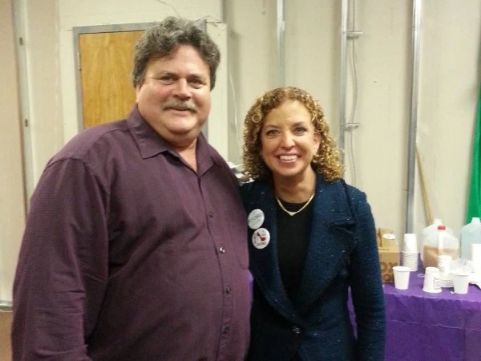Lawsuit Challenges Superdelegate Ballot Stuffing in New Jersey County

In the suit, filed under 42 U.S.C. § 1983, lead plaintiff Scott Neuman is joined by running mate Tracy Caprioni, county committee member Robert DiBella, a former Beachwood councilman, in addition to Burlco’s Patricia Lindsay-Harvey, congressional candidate Frederick J. LaVergne’s chief of staff. While not a named plaintiff in the suit, court papers denoted Mr. LaVergne as an “interested party.”
The group of disenfranchised Democrats is being represented by lawyer Richard Luzzi, of the firm Oler, Luzzi & Breslin. In his brief, Mr. Luzzi contends that the endorsement vote held by the county Democratic organization on March 19th violated the “one person – one vote” doctrine established by precedential supreme court rulings that interpreted the equal protection clause of the 14th Amendment to the US Constitution.
Stuffing The Ballot Box
At issue is the fact that in addition to regular, elected members of the county Democratic committee – which consists of one man and one woman from each election precinct of Ocean County’s municipalities – the convention rules allowed certain delegates to cast multiple ballots in the vote to award the “party line” to candidates for county freeholder and congressional office if they met certain criteria, while regular county committee members only got one vote.
Democratic elected officials, executive board members, and members of party committees and subcommittees were given additional ballots for each role they had.
Better known as “superdelegates,” the practice of allowing Democratic Party insiders to have a disproportionately higher amount of influence in primary elections in spite of the will of voters has come under increased scrutiny in the 2016 presidential race, as many have accused DNC Chair Debbie Wasserman Schultz of rigging the rules in favor of Hillary Clinton.
Wyatt Earp and DNC boss Debbie Wasserman SchultzWhile that national debate has garnered most of the media attention, the issue of superdelegates in Ocean County has been a source of controversy following the Ocean County Democratic Mini-convention in late March.
To support the claim that this violates the equal protection clause of the 14th Amendment, in his brief Luzzi cites Bush v. Gore, in which the court ruled “… having once granted the right to vote on equal terms, the State may not, by later arbitrary and disparate treatment, value one person’s vote over that of another.”
“There are right ways and wrong ways to to hold elections,” Mr. Neuman told Ocean County Politics Friday morning. “Certain people made the decision to ignore their own rules in the Ocean Democratic Organization at our Mini-Convention on March 19. I’m hoping our suit will correct those issues, contribute to a fair and honest elections process and I feel confident in its success.”
A federal judge signed off on an Order to Show Cause and the defendants have until May 26 to formally respond to the lawsuit as it moves through the United States District Court in Trenton. Follow OCP as this story develops further.
Case documents are below:
Editor's note: This article originally published on Ocean County Politics on May 13, 2016, and had been modified slightly for publication on IVN.




